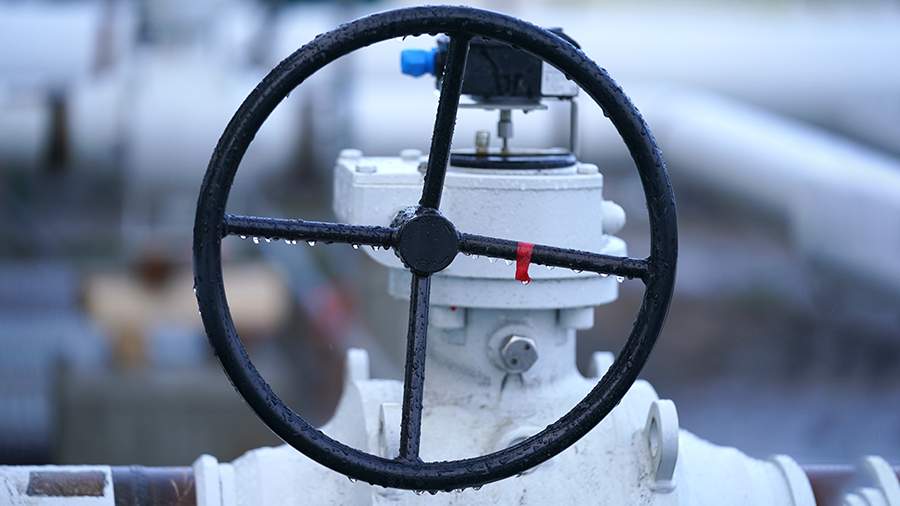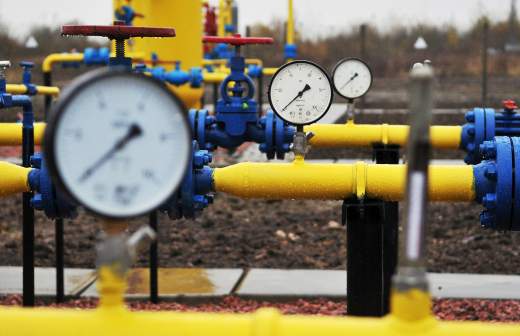Who was hit by the termination of gas transit through Ukraine. Parsing

The cessation of transit through Ukraine has jeopardized the energy security of Moldova, where 88% of generation depends on Russian gas. Ukraine itself is currently suffering from an energy crisis and is heavily dependent on electricity supplies from abroad, including Moldova. The Izvestia analyzes what the transit refusal will lead to.
The threat of a humanitarian catastrophe in Transnistria
- The risk of Russian gas supplies to the left-bank Transnistria being cut off due to the Ukrainian ban on its transit has led to the introduction of a state of emergency in Moldova. While right-bank Moldova has been buying gas on the European market since 2022, Tiraspol continued to receive blue fuel from Russia - about 2 billion cubic meters. And there, in Transnistria, is the gas-fired Moldavskaya TPP, which covers 88% of the right-bank republic's electricity needs. Thanks to supplies from Russia, gas for Transnistrian consumers cost 15 times less than for residents of western Moldova, and as a result, Chisinau received electricity cheaper than other EU countries. Moreover, the right bank of the Dniester consumes 70% of all energy produced by the MGRES.
- Chisinau was unable to agree with Gazprom on an alternative route for gas supplies - via the Turkish Stream pipeline through Turkey, Bulgaria and Romania - because of its $709 million debt to Russia. Chisinau has been insisting for the third year on settling the dispute for $8.6 million.
- Moldova, which will soon lose cheap electricity from a Russian gas-fired hydroelectric power plant, has called for preparation for any scenario, including blackouts, and has imposed a state of emergency in the republic for 60 days. The state of emergency regime will allow to manage the risks of possible blackouts and take any measures, up to "limiting energy exports." Since the beginning of winter, the price of gas for household consumers in Moldova has increased by 27.5%.
- In Transnistria, the economic emergency regime has been in effect since December 11. It implies rational use of gas, priority of preservation of life and health of people, creation of the state reserve of energy resources and a ban on their export. Electricity can be sold on the external market only if gas supplies continue.
- Chisinau has already stated that due to the replacement of Russian gas with European gas, its price for consumers in the unrecognized Transnistrian Moldovan Republic will rise sharply, which may lead to a humanitarian catastrophe not only in Transnistria, but also in right-bank Moldova. The cessation of gas transit may further increase the isolation of Transnistria and worsen the situation of its inhabitants.
- At the same time, disconnection of Transnistria from gas is the least probable scenario, the expert community believes. More than half of the population of the unrecognized republic are Russian citizens. Moscow supports Tiraspol in the conditions of economic blockade and growing pressure from Moldova. Despite the debt accumulated by the Moldovan side and Chisinau's attempts to expel Russian peacekeepers from Transnistria, Russia will try to protect the interests of the region's population. Thus, gas supplies may be continued bypassing Ukraine through the Turkish Stream or through Ukrainian territory, but the fuel will be legally registered as non-Russian.
Implications for Eastern Europe
- After the termination of the transit gas pipeline in Ukraine, Europe will lose about 6 billion cubic meters of gas in the first quarter of 2025. Hungary and Slovakia, which supply electricity to Ukraine, are directly dependent on Russian fuel. Budapest now receives energy carrier through the Turkish Stream pipeline and will not suffer from the termination of transit, while Bratislava imports 89% of gas from Russia just through the pipeline through Ukraine. Slovakia has no other options for obtaining fuel - the country is landlocked, and gas pipelines and LNG terminals are built in the area of maritime transportation hubs. A possible reverse gas supply from its western neighbors would increase transportation costs and make its price unaffordable for consumers. An alternative supply route via Azerbaijan would make gas more expensive for Slovakia by at least €140 million, and most likely it would be the same Russian gas.
- The rejection of Russian gas has already hit the manufacturing sector in Europe. Now gas on the European market is five times more expensive than in the U.S. At the same time, the European Union has changed the requirements for filling gas storage facilities for 2025 - by February 1, they must be at least 50% full, and by May the reserve should not fall below 30%. Eastern European countries will have to pay a higher price to maintain the filling level.
- In case of a crisis in Eastern European countries caused by rising energy prices, senior European partners may start pushing the governments of these countries to reduce consumption and close energy-intensive industries. According to experts, this may in the long run aggravate the economic situation inside the countries and lead to an outflow of the population to countries with more stable economies. However, now that Germany and France, which were prosperous in the past, are facing an economic crisis due to higher energy prices, there are practically no stable economies left in Europe. The overflow of population from Eastern Europe can only exacerbate the situation in these countries (we discussed in detail how the economic and political crises in France and Germany may affect other EU capitals here).
A blow to Ukraine
- The refusal to transit Russian gas will also have a negative impact on Ukraine, which provoked the problem. Kiev not only loses revenue from transit, but also jeopardizes its own energy security. While in the past the country was an exporter of electricity, now Ukraine has almost completely lost coal-fired generation and has problems with thermal and hydroelectric power plants. The main supplier of electricity in the country is nuclear power plants, which used to provide Ukraine with electricity by 55%, but they had to shut down several power units due to strikes on the distribution substations of the second stage. Kiev gets the missing capacity from Europe.
- At the end of the year, Kiev requested additional electricity supplies from five countries, including Moldova and Slovakia. Given the crisis in Chisinau, the load on the other capitals may multiply, and the fate of the agreement will be in question. Also on the list are Romania, Hungary and Poland, but Warsaw froze back in September a project to produce electricity for Ukraine at Polish thermal power plants and to build a second transmission line from Rzeszow to the Khmelnitsky nuclear power plant. Thermal power plants in Poland run on coal, and the EU imposes a high carbon tax on such production. Warsaw has not succeeded in getting the tax abolished for supplies to Ukraine.
- Targeted supplies of electricity to markets in other countries are carried out on a competitive basis, and the need to compete puts Poland at a disadvantage. In addition, the initiative faced discontent inside the country, where they said that the Polish government puts the needs of Ukrainians above its citizens, for whom the cost of electricity is more expensive.
- In 2023, Kiev received 4.3 billion cubic meters of gas as part of the reverse supply from the EU and Moldova. The IEA warned that the termination of transit would make it impossible to virtually reverse gas from Europe to Ukraine, on which Kiev is especially dependent in winter. Under this scheme, part of the Russian gas supplied to Europe remained in the storage facilities of the transit country and was then transferred to Ukraine as part of the reverse flow.
- Ukraine may need to import additional 0.5 to 2bn cu.m. of Russian gas. m to meet domestic demand in winter. The possibility of supplying gas to Ukraine from Romania and Moldova via the Trans-Balkan pipeline is being considered. But the new route will increase transportation costs, which will inevitably affect tariffs. In addition, Moldova itself suffers from gas shortages.
- The World Bank has already allocated $500 million to Ukraine to purchase the necessary volume of gas for domestic consumption, so Kiev may not feel the increase in fuel costs this winter. But the Europeans will once again have to pay for Kiev's principled position from their own funds.
While preparing the material, Izvestia spoke to:
- Political scientist Ivan Skorikov;
- Political scientist Alexei Yaroshenko;
- Igor Semenovsky, political scientist, associate professor of the Department of International and Public Law at the Financial University under the Government of the Russian Federation.
Переведено сервисом «Яндекс Переводчик»



